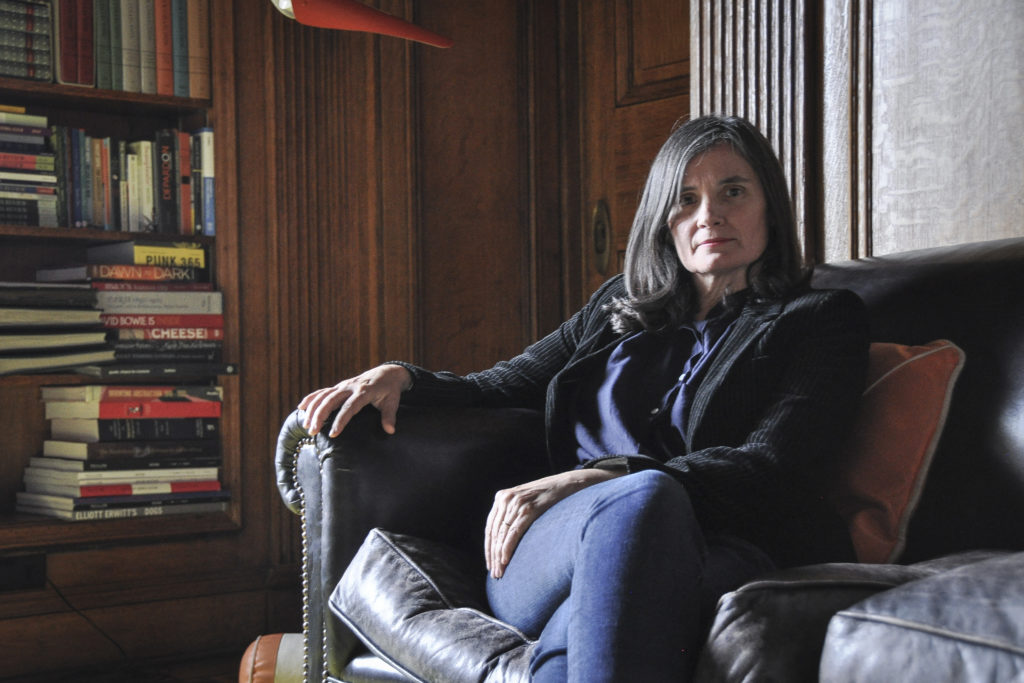The Paris Review mourns the loss of publisher Susannah Hunnewell, friend, colleague, and luminous presence at the magazine for three decades, who passed away on June 15 at her home in New York. She was 52.
Susannah Hunnewell was born in Boston and spent much of her childhood in Paris. She attended Harvard, where she studied English with the playwright William Alfred. She began her career with The Paris Review as an editorial assistant in the summer of 1989. George Plimpton, the magazine’s founding editor, quickly recognized her literary precociousness, commitment to international literature, and “herculean” work ethic, and in her first years at the quarterly she translated Nobel laureate Mario Vargas Llosa’s Art of Fiction interview from the original Spanish, worked on fiction by Niccolò Tucci, and helped George in editing The Paris Review Anthology (1990) and the first Writer’s Chapbook (1989). Those early years at the magazine were fortuitous in another way: it was during her first summer in the cramped office on East Seventy-Second that she met Antonio Weiss, then the magazine’s associate editor, whom she would marry in 1993. The couple went on to have three sons.
So began Susannah’s long affiliation with the magazine. In 2000 Susannah and her family returned to Paris; she became the magazine’s Paris editor in 2005. During this time she conducted iconic interviews with Nobel laureate Kazuo Ishiguro, Oulipo cofounder and poet Harry Mathews, French provocateur and novelist Michel Houellebecq, and Parisian nonfiction novelist Emmanuel Carrère, as well as with the famed translator-couple Richard Pevear and Larissa Volokhonsky. These interviews, at once broad in range and meticulously edited into ideal presentations of the writer at work, show Susannah’s intellectual fortitude, determined inquisitiveness, and editorial acumen. As Carrère later said of their conversation, “The long interviews with writers published in The Paris Review are renowned both for their seriousness and their liberty, but it wasn’t until I met Susannah Hunnewell that I was able to determine what this seriousness and liberty could be. We spent two days together; I would have liked for us to have spent three, four, five … I don’t know of anyone funnier, wittier, or friendlier than Susannah … The result, a few months later, left me stunned and admiring: she had made cuts, of course, rephrased my words, but I had the impression that everything was there. In each sentence, I recognized my own voice. One must have talent, not just that of a writer but that of a musician, to create such a transcription and it’s a rare experience to be its recipient.”
In 2015, Susannah, back in New York, became the seventh publisher of The Paris Review. As publisher she was a generous colleague and mentor, integral to the board and staff both. She was known to take the staff out for martini lunches at the Odeon, where she’d grill the new interns on personal histories and professional aspirations—and keep those details committed to memory as the new Parisians’ courses progressed.
Last November, in an elegant ceremony at the French Consulate, Susannah became a chevalier of the Order of Arts and Letters for her contributions to literature (she also worked at George, Marie Claire, and the New York Times, and was a founding board member of the Albertine Bookshop). Among her many meaningful efforts on both sides of the Atlantic, it is her long engagement with The Paris Review that defines her literary career. Her three decades with the magazine, a span made better by her intelligence, kindness, and great spirit, have left an indelible imprint on The Paris Review.
More tributes to Susannah will appear in the coming days. For now, we remember that not long ago, she referred to the magazine as “our magical world.” It is a world she helped build and one she enthusiastically, big-heartedly shared with others. We will miss her dearly.
from The Paris Review http://bit.ly/2FcwzGl

Comments
Post a Comment